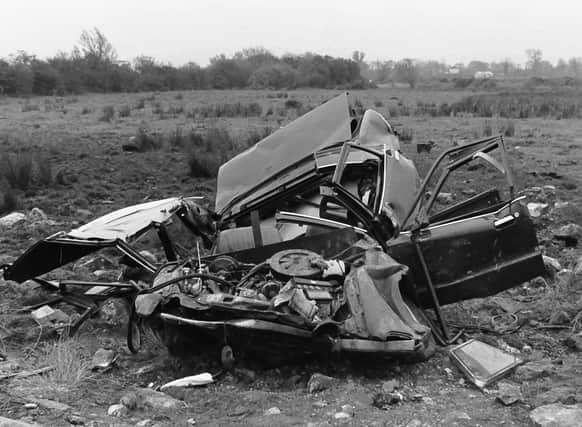Decades-long delays in ‘shoot-to-kill’ inquests disturbing, says judge


High Court judge Mr Justice O’Hara has been appointed as presiding coroner to restart a stalled examination of nine killings that are associated with the lethal force controversy.
The shoot-to-kill cases involve the deaths of six people – five republican paramilitaries and a Catholic teenager – who were shot dead by a special RUC unit around Lurgan and Armagh in three separate incidents in 1982.
Advertisement
Hide AdAdvertisement
Hide AdA fourth linked incident occurred weeks earlier when three RUC officers were killed in a bomb blast in Lurgan.
The Kinnego embankment bombing has been cited as the event that motivated the first alleged shoot-to-kill incident, with members of the RUC unit accused of setting out to kill the IRA men they suspected were responsible for murdering the three police officers.
Fresh inquest proceedings covering all nine deaths were instigated 14 years ago but continual delays around the disclosure of confidential state files has hampered their progress.
Justice O’Hara has been given stewardship of the cases as part of an initiative by Lord Chief Justice Sir Declan Morgan to progress several long-delayed legacy inquests.
Advertisement
Hide AdAdvertisement
Hide AdAt a preliminary hearing on Wednesday, the coroner said the inquests were now likely to be heard in “early 2023”.
“The fact that these inquests have not yet taken place despite the fact that the deaths occurred more than 38 years ago is disturbing to say the least,” he said.
“It is my function to do everything I can reasonably do in order to achieve inquest hearings.”
The hearing at Laganside Court in Belfast was told that the inquests would be divided into separate modules, with a two week “scene setting” hearing first.
Each of the four incidents would then be examined in turn.
The incidents are:
Advertisement
Hide AdAdvertisement
Hide Ad• October 1982 – RUC sergeant Sean Quinn, 37, and constables Paul Hamilton, 26, and Allan McCloy, 34, are killed in the blast at Kinnego Embankment;
• November 1982 – IRA men Eugene Toman, Sean Burns and Gervaise McKerr are killed near Lurgan when police fire more than 100 bullets into the car they were travelling in after claiming it crashed through a checkpoint;
• November 1982 – Michael Tighe, 17, who was not involved in paramilitarism, is shot dead by the RUC at a hay shed near Craigavon. Another man is seriously injured. Rifles were stored at the shed and the building had been under MI5 surveillance prior to the shooting;
• December 1982 – INLA men Roddy Carroll and Seamus Grew are shot dead in a car by the RUC outside Armagh.
Advertisement
Hide AdAdvertisement
Hide AdJustice O’Hara said he intended to hold a hearing in June to consider applications from state agencies for certain information related to the Kinnego bombing to be redacted for security reasons.
The court also heard about two unrelated criminal justice processes that are ongoing and could affect the inquest proceedings.
The first is an independent reinvestigation of the Kinnego bomb by retired police chief Jon Boutcher and the second is a pending decision by prosecutors on whether anyone will be charged over the destruction of MI5 surveillance tapes at the hay shed.
Justice O’Hara said he was aware the outcome of those processes might cause him to revisit some of his decisions around disclosure, but he insisted he was going to press ahead with his work.
Advertisement
Hide AdAdvertisement
Hide Ad“Part of the problem I understand and the history of these cases is that there’s always been a reason to wait for something else to happen,” he said.
During Wednesday’s hearing, lawyers representing some of those who died highlighted the ongoing frustration of their loved ones at the repeated delays.
Fiona Doherty QC, representing the Grew and Carroll families, noted that surviving parents of the men, who had been alive when the proceedings were instigated, had all since died.
“We’re now 14 years since the reopening of these inquests and still a couple of years from hearing,” she said.